
 Published on and written by Cyril Jarnias
Published on and written by Cyril Jarnias
Sri Lanka, the jewel of the Indian Ocean, is increasingly attracting the attention of international real estate investors. With its pristine beaches, rich culture, and growing economy, this country offers enticing prospects for those looking to diversify their real estate portfolio. In this article, we will explore in detail the reasons to invest in Sri Lankan real estate, market prices, available property types, the most attractive areas, and acquisition conditions for foreigners.
Discover our other articles on real estate investment in Sri Lanka:
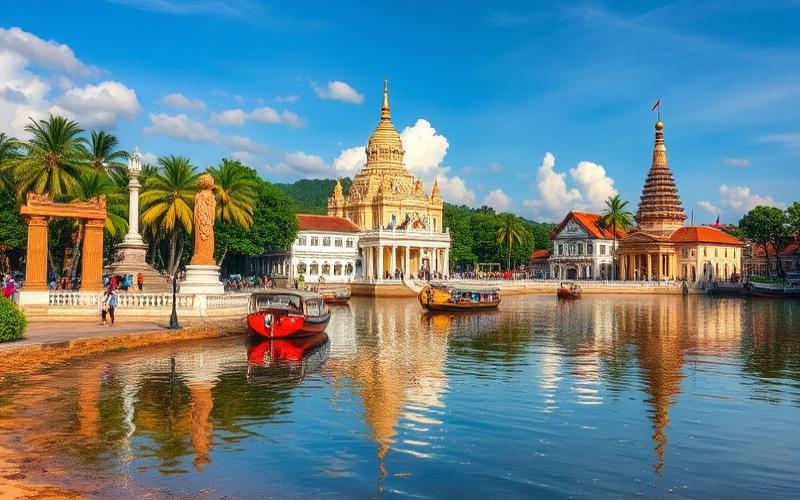

Sri Lanka, this pearl of the Indian Ocean, is attracting more and more real estate investors due to its economic [...]
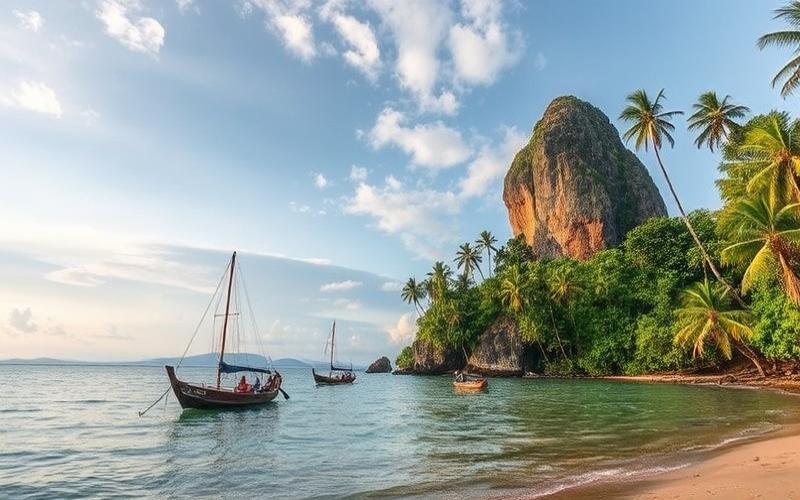

Sri Lanka, a paradise island in the Indian Ocean, is attracting an increasing number of foreign real estate investors. With [...]
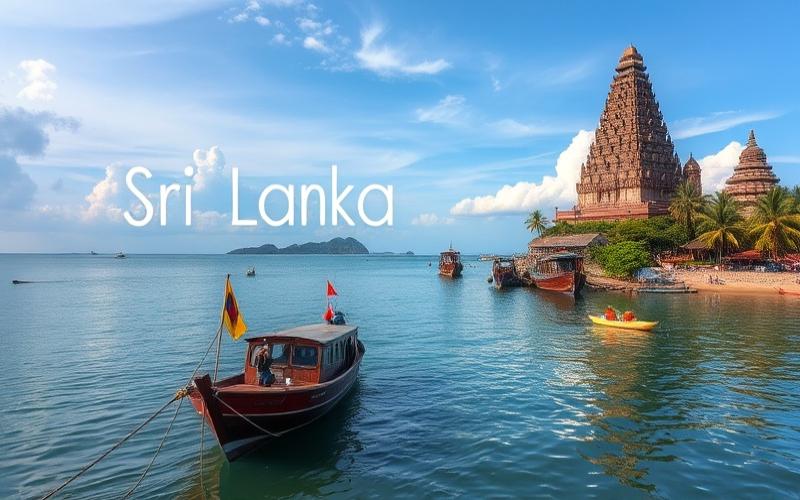

Sri Lanka, this paradise island in the Indian Ocean, is increasingly attracting the attention of international real estate investors. With [...]


Sri Lanka, this paradise island in the Indian Ocean, is attracting more and more foreign investors seeking beachfront properties. With [...]
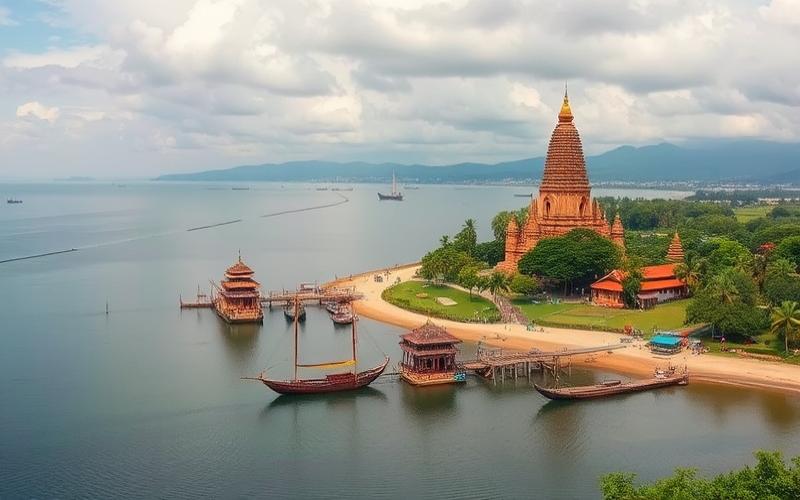

Sri Lanka, this paradise island in the Indian Ocean, is attracting an increasing number of foreign investors eager to acquire [...]


Sri Lanka, with its paradise beaches, rich culture, and historical heritage, is attracting more and more foreign investors to the [...]
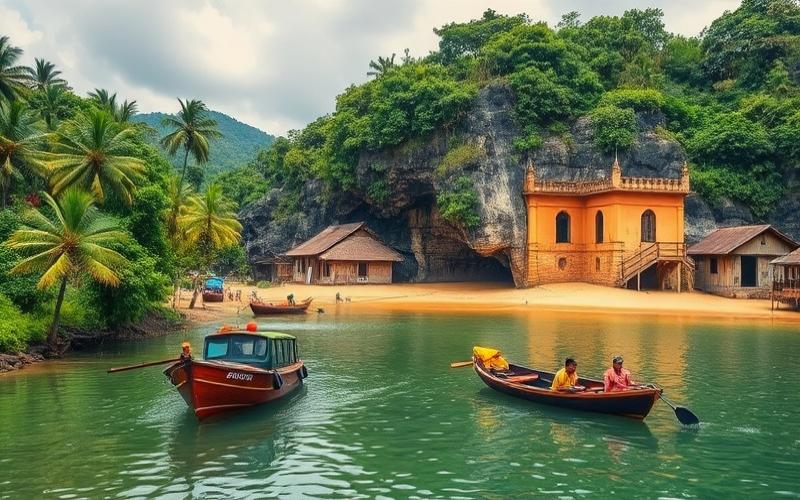

Sri Lanka, a paradise island in the Indian Ocean, is attracting more and more foreign investors eager to purchase real [...]
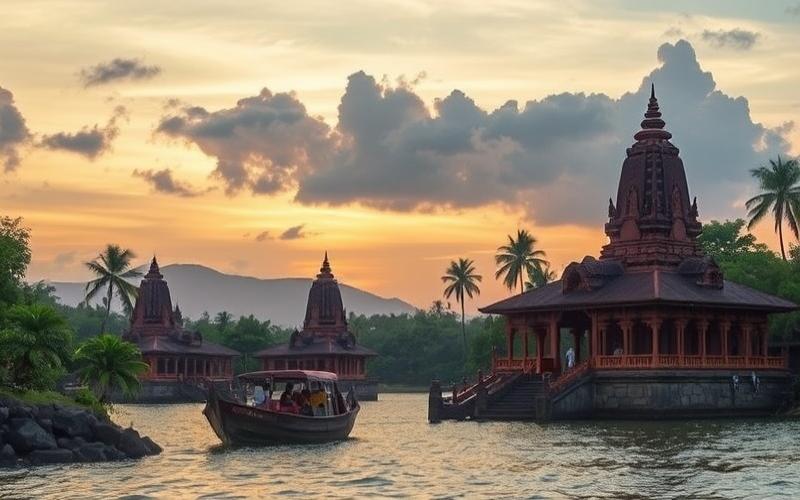

Sri Lanka, nicknamed the “Pearl of the Indian Ocean,” has become an increasingly popular tourist destination in recent years. This [...]
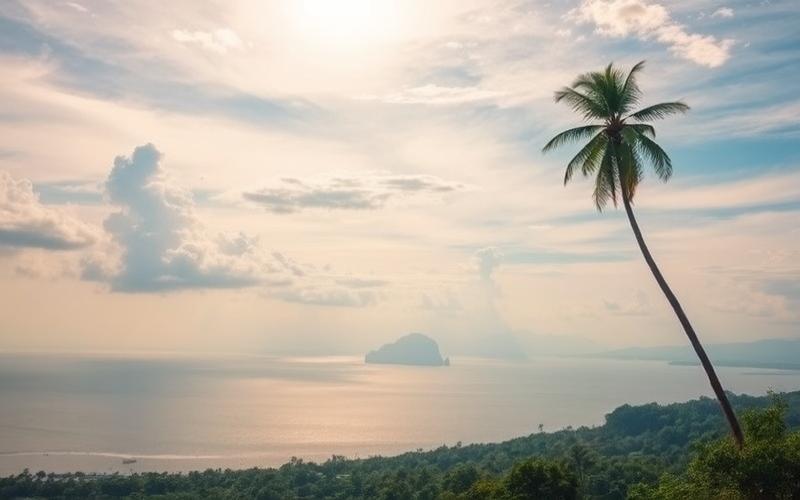

Sri Lanka, the jewel of the Indian Ocean, has become a top destination for travelers worldwide. With its pristine sandy [...]
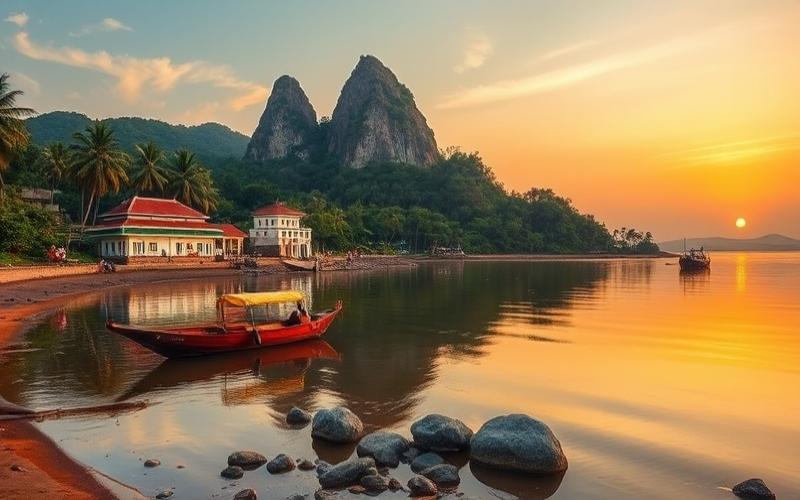

Sri Lanka, this pearl of the Indian Ocean, is experiencing urban dynamism. With a rapidly growing economy and a clear [...]
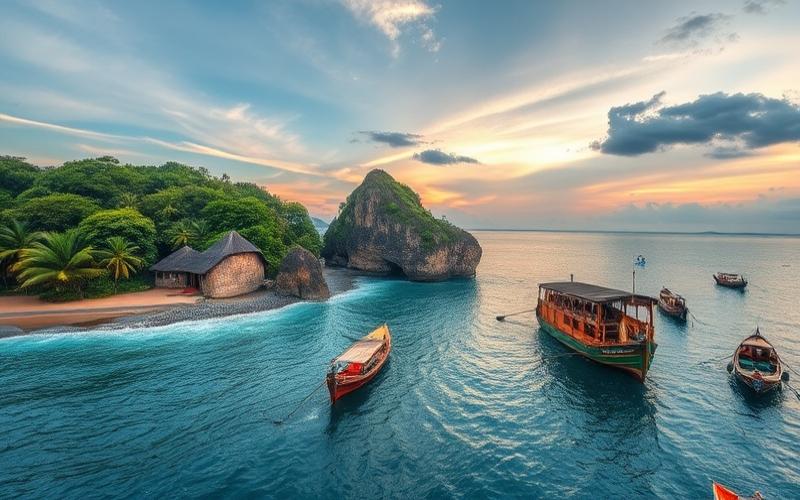

Sri Lanka’s tropical island, with its white sand beaches, rich culture, and booming economy, is increasingly attracting international real estate [...]
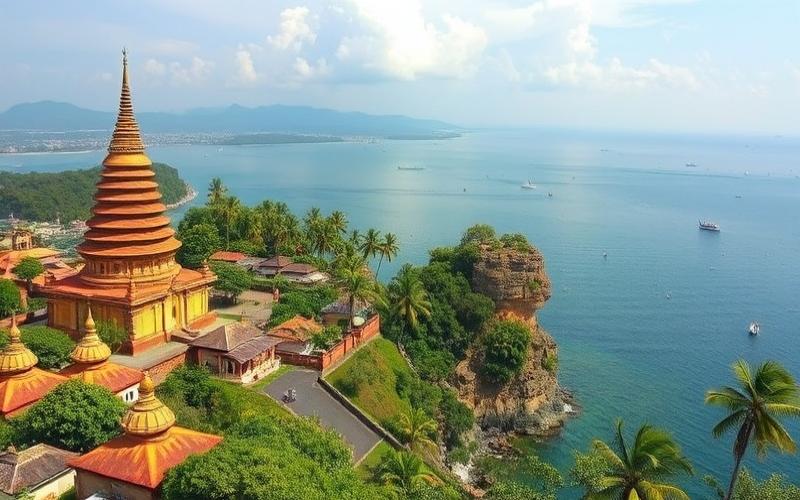

Sri Lankan real estate investment is attracting an increasing number of foreign investors, drawn by the island’s paradise beaches, cultural [...]
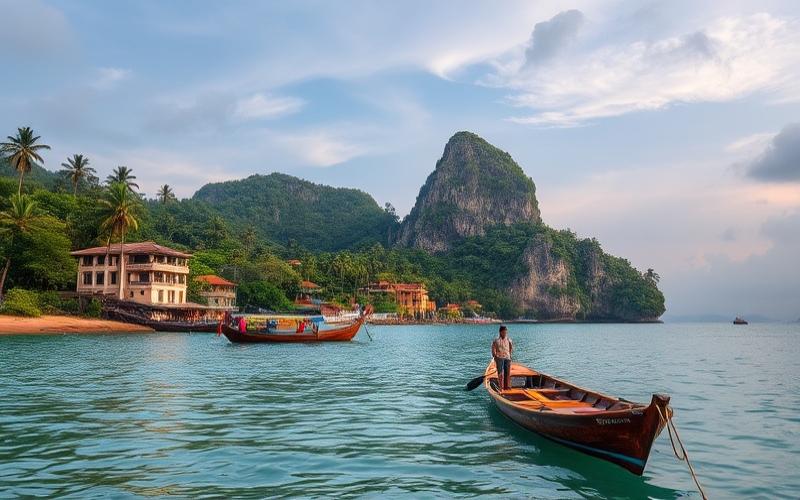

Sri Lanka, this enchanting island nestled in the Indian Ocean, is increasingly capturing the attention of affluent investors seeking luxury [...]
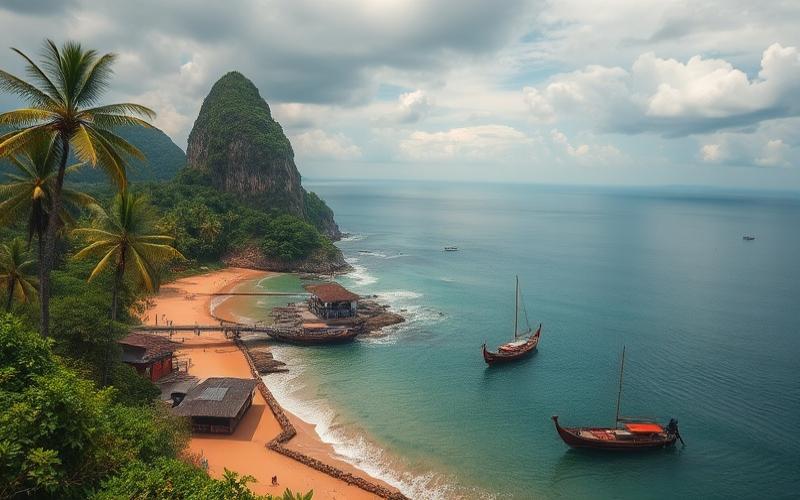

Sri Lanka, a paradise island in the Indian Ocean, is attracting an increasing number of foreign real estate investors drawn [...]
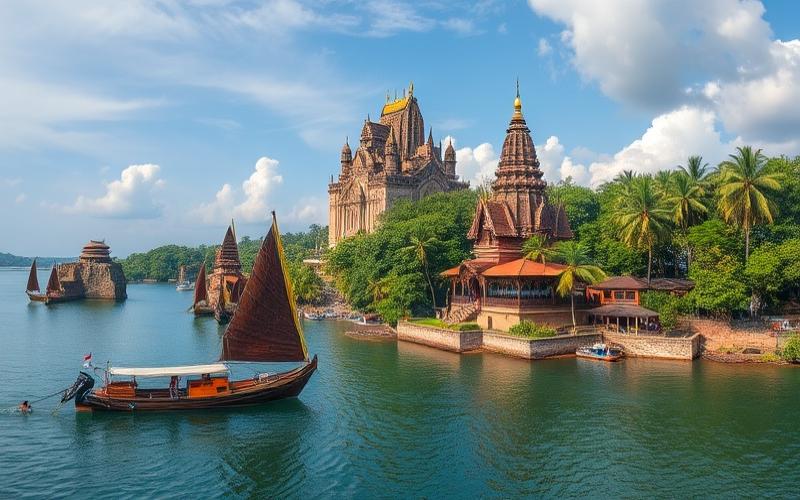

Sri Lanka’s real estate market offers excellent opportunities, but selling a property quickly in this tropical country requires a strategic [...]
Sri Lanka: A Paradise for Real Estate Investors
Sri Lanka boasts numerous assets that make it a prime destination for real estate investment. First, the country has experienced sustained economic growth since the end of the civil war in 2009. This political and economic stability has created a favorable environment for foreign investments, particularly in the real estate sector.
The Sri Lankan government has implemented policies aimed at attracting foreign investors, particularly by simplifying real estate acquisition procedures. Additionally, the country benefits from a strategic geographical position, at the crossroads of maritime routes between Asia and Europe, making it a burgeoning commercial hub.
Tourism, which is growing rapidly in Sri Lanka, is another factor stimulating the real estate market. Investors can thus benefit from very attractive short-term rental potential, particularly in coastal areas and major cities.
Finally, the relatively low cost of living in Sri Lanka allows investors to benefit from increased purchasing power, resulting in more accessible investment opportunities than in other more popular Asian destinations.
Sri Lanka therefore offers an appealing mix of economic growth, political stability, tourism development, and affordable cost of living, making it a prime destination for savvy real estate investors.
Good to know:
Sri Lanka experienced average economic growth of 5.3% per year between 2010 and 2019, making it one of the most dynamic economies in South Asia.
The Sri Lankan Real Estate Market: Attractive Prices for All Budgets
The real estate market in Sri Lanka offers a varied price range, allowing investors to find opportunities that fit their budget. Prices vary considerably depending on location, property type, and quality.
In the capital Colombo, the country’s economic center, prices for luxury apartments in sought-after neighborhoods can reach $2,500 to $3,500 US dollars per square meter. However, it’s possible to find more affordable properties in peripheral areas, with prices ranging between $1,000 and $1,500 per square meter.
In tourist coastal towns like Galle or Mirissa, prices for luxury beachfront villas can range from $300,000 to $1 million, or even more for exceptional properties. Apartments in these areas typically trade between $100,000 and $300,000, depending on their size and location.
In inland regions, like Kandy or Nuwara Eliya, prices are generally more affordable. A renovated traditional house can sell for between $100,000 and $250,000, while a modern apartment in a residential complex can cost between $80,000 and $150,000.
It’s important to note that these prices are given as indications and may vary depending on numerous factors. Additionally, the Sri Lankan real estate market has experienced some volatility in recent years, particularly due to the COVID-19 pandemic and the country’s economic difficulties in 2022. However, this situation has also created opportunities for long-term investors, with more attractive prices in certain areas.
The Sri Lankan real estate market therefore offers a great diversity of prices, allowing investors to find opportunities that fit their budget, whether for rental investment or for a second home.
Good to know:
According to a LankaPropertyWeb report, the average price of apartments in Colombo increased by 5.8% in 2021, despite the pandemic, demonstrating the resilience of the Sri Lankan real estate market.
A Range of Choices: The Main Types of Housing in Sri Lanka
The Sri Lankan real estate market offers a wide variety of housing types, suited to different lifestyles and investment objectives. Here’s an overview of the main available options:
1. Modern apartments: In large cities like Colombo, there are many modern apartment complexes. These properties are particularly sought after by young professionals and expatriates. A two-bedroom apartment in an upscale complex in Colombo can cost between $150,000 and $250,000.
2. Luxury villas: Luxury villas, often located by the sea or in upscale neighborhoods, are highly sought after by wealthy investors and second-home buyers. A luxury villa with a pool in Galle can sell for between $500,000 and $1 million.
3. Traditional houses: Traditional Sri Lankan houses, called “Walawwa,” offer unique charm and are often renovated to meet modern standards. A renovated traditional house in Kandy can cost between $200,000 and $400,000.
4. Bungalows: Bungalows are popular in coastal areas and mountainous regions. They offer a good compromise between space and affordable price. A three-bedroom bungalow in Mirissa can sell for around $150,000 to $250,000.
5. Buildable land: For those who wish to build their own house, purchasing land is an interesting option. Prices vary considerably depending on location, but a 500 m² plot in a residential area of Negombo can cost between $50,000 and $100,000.
6. Commercial properties: Investors can also consider commercial properties, such as office spaces or commercial premises. A 100 m² office space in downtown Colombo can sell for between $200,000 and $300,000.
This diversity of housing types allows investors to choose the property that best fits their investment strategy, whether for short-term rental, long-term rental, or personal use.
Good to know:
According to LankaPropertyWeb data, apartments represent about 60% of real estate searches in Colombo, followed by houses (25%) and land (15%), reflecting the growing popularity of condominium housing in the capital.
Golden Zones: The Most Attractive Regions for Real Estate Investment in Sri Lanka
Sri Lanka offers several attractive regions for real estate investment, each with its own characteristics and advantages. Here’s an overview of the most promising areas:
1. Colombo and its periphery: The economic capital of Sri Lanka remains the most dynamic area for real estate investment. Downtown Colombo, particularly the neighborhoods of Colombo 3, 4, and 7, attracts high-end investors with its luxury apartments and commercial properties. The periphery of Colombo, including areas like Rajagiriya, Battaramulla, and Nawala, offers interesting opportunities for residential investments at more affordable prices.
2. The southwest coast: This region, which includes cities like Galle, Unawatuna, and Mirissa, is highly sought after for its tourism potential. Luxury villas and boutique hotels are particularly in demand. The fortified city of Galle, a UNESCO World Heritage site, attracts many international investors for its renovated colonial properties.
3. The Kandy region: Located in the hills of central Sri Lanka, Kandy offers a cooler climate and lush surroundings. The city, also a UNESCO World Heritage site, attracts investors interested in traditional properties and country houses. Peripheral areas like Peradeniya and Digana are developing rapidly.
4. Negombo and the west coast: Close to the international airport, Negombo is a popular destination for tourism-related investments. The west coast, including towns like Beruwala and Bentota, also offers good opportunities for beachfront properties.
5. Nuwara Eliya: Nicknamed “Little England” due to its cool climate and colonial architecture, Nuwara Eliya attracts investors looking for unique properties in a mountainous setting. Colonial-style houses and bungalows are particularly sought after there.
6. Trincomalee and the east coast: Although less developed than the west coast, the Trincomalee region on the east coast is seeing growing interest. The pristine beaches and tourism development potential make it an area to watch for long-term investors.
Each of these regions offers unique opportunities, whether for tourist rental investment, long-term rental, or purchasing a second home. The choice of area will depend on the investor’s objectives and their long-term strategy.
Good to know:
According to a JLL report, real estate prices in central Colombo experienced average annual growth of 7% between 2015 and 2020, making the capital one of the most dynamic areas for real estate investment in Sri Lanka.
Sri Lanka vs. Its Competitors: Comparison with Other Similar Destinations
To better understand Sri Lanka’s appeal as a real estate investment destination, it’s interesting to compare it with other similar destinations in South and Southeast Asia. This comparison will highlight Sri Lanka’s competitive advantages, but also its potential challenges.
1. Sri Lanka vs. Thailand: Thailand is a well-established destination for real estate investment, particularly in Bangkok and beach resorts like Phuket. Compared to Thailand, Sri Lanka generally offers lower entry prices and a less saturated market. However, Thailand benefits from more developed tourism infrastructure and more favorable regulations for foreign investors.
2. Sri Lanka vs. Bali (Indonesia): Bali is a popular destination for luxury villa investment. Sri Lanka offers similar opportunities, particularly on the south coast, but with generally more affordable prices. Additionally, Sri Lanka benefits from greater diversity of landscapes and cultural experiences.
3. Sri Lanka vs. Malaysia: Malaysia, particularly Kuala Lumpur, attracts many real estate investors. Compared to Malaysia, Sri Lanka offers a lower cost of living and investment opportunities at more accessible prices. However, Malaysia benefits from a more diversified economy and more developed infrastructure.
4. Sri Lanka vs. Vietnam: Vietnam is experiencing a real estate boom, particularly in Ho Chi Minh City and Hanoi. Compared to Vietnam, Sri Lanka offers a more stable environment for foreign investors and clearer regulations. However, Vietnam benefits from faster economic growth and a larger domestic market.
5. Sri Lanka vs. India: India, particularly in major cities like Mumbai and Bangalore, offers a vast and dynamic real estate market. Compared to India, Sri Lanka offers a simpler acquisition process for foreigners and a less complex market. However, India benefits from a much larger and more diversified economy.
Sri Lanka stands out for its attractive prices, relative political stability, geographical and cultural diversity, and its largely untapped growth potential. These assets make it an interesting alternative for investors looking to diversify their real estate portfolio in Asia.
Good to know:
According to the Global Property Guide, the average gross rental yield for apartments in central Colombo is about 4-5%, which is comparable to yields observed in cities like Bangkok or Kuala Lumpur.
Investing in Sri Lanka: Acquisition Conditions for Foreigners
The acquisition of real estate properties by foreigners in Sri Lanka is subject to certain rules and restrictions. It’s crucial to understand these conditions well before embarking on real estate investment in the country.
1. Restrictions on land ownership: Sri Lankan law imposes significant restrictions on land purchases by foreigners. Generally, foreigners cannot buy land in full ownership. However, there are exceptions and alternatives:
– Foreigners can buy apartments from the 4th floor of a building. – It’s possible to obtain a long-term lease (up to 99 years) on land. – Companies incorporated in Sri Lanka with foreign participation of less than 50% can purchase land.
2. Property transfer tax: Foreigners who purchase real estate properties in Sri Lanka are subject to a property transfer tax of 100% of the property’s value. This tax does not apply to the purchase of apartments above the 4th floor.
3. Acquisition process: The purchase process typically involves the following steps: – Property search and selection – Title verification – Price negotiation and agreement – Signing a preliminary contract – Obtaining necessary authorizations (if applicable) – Signing the deed of sale before a notary – Property registration
4. Financing: Sri Lankan banks rarely offer mortgages to foreigners. Most foreign investors therefore finance their purchases with equity or loans obtained in their home country.
5. Investor visa: Sri Lanka offers an investor visa for foreigners who invest a significant amount in the country, including in real estate. This visa can facilitate long-term stays in the country.
6. Tax considerations: Rental income generated in Sri Lanka is subject to local income tax. It’s important to inquire about tax treaties between Sri Lanka and your country of residence to avoid double taxation.
Although restrictions on land ownership may seem restrictive, they don’t prevent foreign investors from benefiting from opportunities in the Sri Lankan real estate market, particularly in the apartment sector and long-term leases.
Good to know:
According to the Sri Lanka Board of Investment, foreign direct investments in the real estate sector reached $437 million in 2019, demonstrating the country’s growing appeal to international investors despite existing restrictions.
Rental Profitability in Sri Lanka: Promising Prospects
Real estate investment in Sri Lanka can offer interesting rental profitability prospects, whether for short-term (tourism) or long-term (residential) rental. Here are some examples and data to illustrate the profitability potential:
1. Short-term rental (tourism): The tourism sector in Sri Lanka, which was growing rapidly before the COVID-19 pandemic, offers attractive opportunities for seasonal rental.
Example: A luxury 3-bedroom villa in Unawatuna, on the south coast, can rent for $200 to $300 per night during high season. With an average occupancy rate of 60% per year, this can generate an annual gross income of about $40,000 to $60,000. For a villa purchased at $400,000, this would represent a gross yield of 10 to 15% before expenses and taxes.
2. Long-term rental (residential): The demand for quality housing in major cities, particularly Colombo, offers stable long-term rental opportunities.
Example: A 2-bedroom apartment in a modern complex in Colombo 3, purchased for $200,000, can rent for about $1,000 to $1,500 per month. This represents an annual income of $12,000 to $18,000, or a gross yield of 6 to 9% before expenses and taxes.
3. Yields by area: Rental yields vary by area: – Central Colombo: 4-6% for luxury apartments – Colombo suburbs: 6-8% for houses – Tourist coastal areas: 8-12% for villas (seasonal rental) – Kandy: 5-7% for residential properties
4. Factors influencing profitability: – Location: Well-located properties in tourist areas or Colombo’s business districts typically offer the best yields. – Property type: Modern apartments and luxury villas are particularly in demand. – Property management: Effective management can maximize occupancy rates and income, especially for tourist rentals. – Taxation: Rental income is subject to Sri Lankan income tax, which impacts net profitability.
Although these figures are promising, it’s important to note that profitability can vary considerably depending on many factors, including the quality of property management, fluctuations in the tourism market, and the evolution of the local economy.
Good to know:
According to a LankaPropertyWeb report, despite recent challenges, the rental market in Colombo showed signs of recovery in 2023, with increased demand for quality apartments, particularly from expatriates and local professionals.
Conclusion: Sri Lanka, A Real Estate Investment Destination to Seriously Consider
Real estate investment in Sri Lanka presents attractive potential for international investors looking for new opportunities in Asia. Despite recent challenges related to the pandemic and economic difficulties, the country offers many assets that make it an interesting long-term investment destination.
The main advantages of real estate investment in Sri Lanka include: – Relatively affordable entry prices compared to other popular Asian destinations – Significant growth potential, particularly in the tourism sector – A diversity of real estate properties, from modern apartments to luxury villas and historical properties – Attractive rental yields, particularly in tourist areas and major cities – A pleasant living environment, combining natural beauty, cultural richness, and legendary hospitality
However, potential investors should also be aware of the challenges and risks, including: – Restrictions on land ownership for foreigners – Potential economic and political volatility – The need for effective property management, particularly for tourism investments – Tax and legal considerations specific to Sri Lanka
To succeed in real estate investment in Sri Lanka, it’s crucial to: – Conduct thorough due diligence before any purchase – Surround yourself with trusted local professionals (lawyers, real estate agents, property managers) – Have a long-term vision for the investment – Diversify your portfolio to minimize risks
In conclusion, Sri Lanka offers interesting opportunities for savvy real estate investors who are willing to explore new horizons in Asia. With a careful and well-informed approach, real estate investment in Sri Lanka can be a valuable addition to a diversified international real estate portfolio.
Disclaimer: The information provided on this website is for informational purposes only and does not constitute financial, legal, or professional advice. We encourage you to consult qualified experts before making any investment, real estate, or expatriation decisions. Although we strive to maintain up-to-date and accurate information, we do not guarantee the completeness, accuracy, or timeliness of the proposed content. As investment and expatriation involve risks, we disclaim any liability for potential losses or damages arising from the use of this site. Your use of this site confirms your acceptance of these terms and your understanding of the associated risks.



